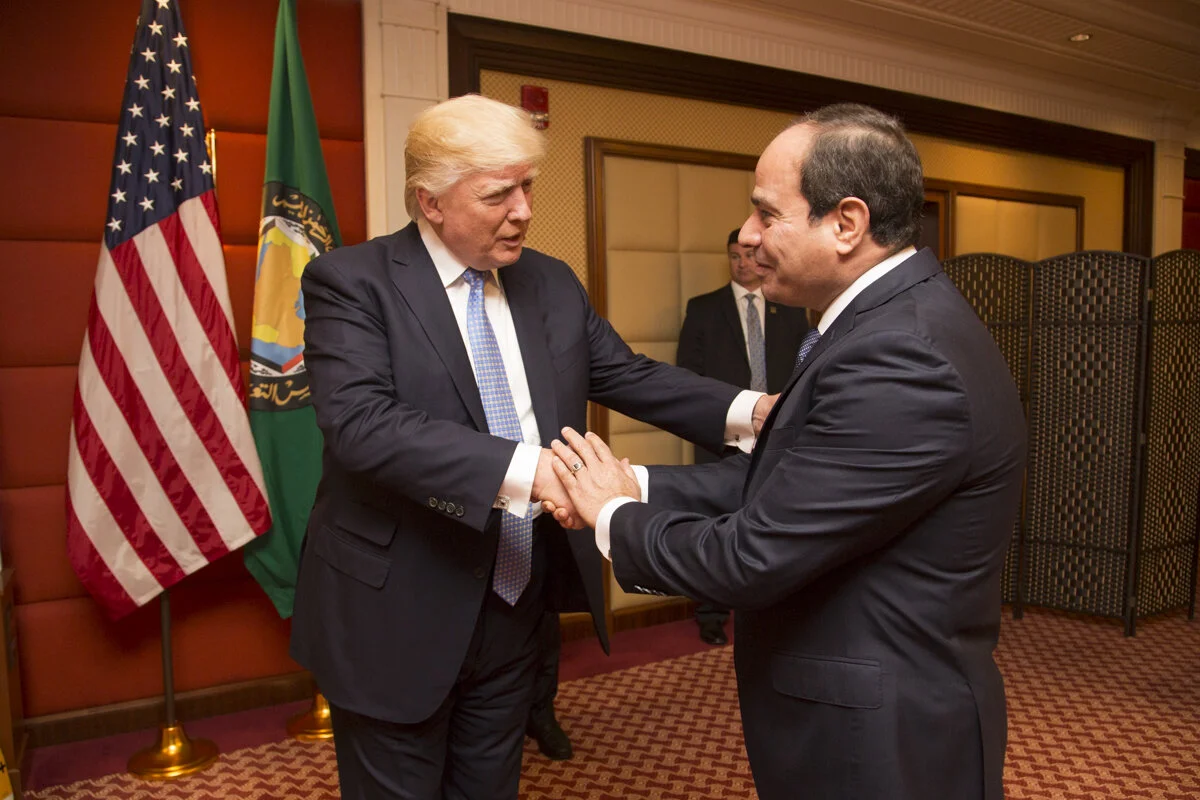Egypt’s Slide into Despotism: Is There Anything that the United States Can Do?
Even though many within the United States consider Egypt a vital partner in the Middle East, it is imperative that the U.S. government conditions its military assistance to Egypt in order to push it towards democratization and respect for human rights. Though many in the West, including the United States, thought that the 2011 Egyptian Revolution would bring about sweeping democratic change in Egypt, experts now agree that Egypt, under current President Abdeh Fattah al-Sisi, is more repressive than at any point in modern Egyptian history. If Egypt were to see a return to revolution, it is more likely that it will devolve into a crisis more violent than either the 2011 or 2013 Egyptian crises. To ensure this does not happen, the United States must place conditions on its military assistance in order to pressure the al-Sisi government to increase citizens’ civil and political rights.
Many past and current American policymakers wrongly believe that the Egyptian regime has a strong hold on power; however, this is not the case. For example, in August 2019, a former military contractor and actor began posting online videos criticizing President al-Sisi, arguing that the entire regime is corrupt, and that Egyptians should protest the regime. Even though only a relatively small number of people heeded the former contractor’s call, al-Sisi and the government handled the small protests with brute force and violence. Over 3,100 people were arrested in the months after the protests; many of those arrested were not even involved in the protests. In addition to the arrests, the Egyptian government began creating ad-hoc police checkpoints throughout the country; the police at these checkpoints began randomly searching people’s phones, attempting to find any reason to link them to support for the protests. If the Egyptian government had such a strong hold on power, there would be no need for such draconian measures.
The Egyptian government has also sought to limit its citizens’ ability to disseminate and consume accurate news and information. From the time that al-Sisi took power in 2013 until today, Egypt has arrested dozens of journalists attempting to accurately report inside Egypt. As of this writing, Egypt is currently jailing 26 journalists solely based on trying to report the truth. The government is also pressuring independent domestic news sources to disseminate government propaganda. In addition, the Egyptian regime began blocking websites considered “anti-regime.” At various points, the Egyptian government has blocked web access to Human Rights Watch, the Tahrir Institute for Middle East Policy, local news organization Mada Masr, among others.
With these repressive tactics, al-Sisi and his regime have attempted to create an illusion of security to the outside world, which is eager to believe in this fallacy. The United States currently sends approximately $1.3 billion to Egypt in military assistance, even though under American law, this assistance should have been halted after 2013. This is because the events of 2013 were clearly a coup; al-Sisi and the military forcibly deposed the duly elected President of Egypt, Mohammed Morsi. American law dictates that the U.S. government must halt all assistance to a country that experienced a coup; however, the former Obama Administration refused to do so.
Many within the U.S. government want to believe that al-Sisi has brought peace and security to Egypt and refuse to contemplate ending support for the Egyptian government. For much of Egypt’s modern history, it has been ruled by strongmen or the military. These figures have convinced large segments of the U.S. government that only heavy-handed authoritarianism can keep Egypt safe and secure. But these tactics only ensure the survival of their regimes, failing to provide a security for Egypt. Authoritarianism breeds instability; even though an authoritarian state may appear to be stable and peaceful, it is a powder keg ready to erupt. Syria, Libya, the USSR, East Germany, Saddam Hussein’s Iraq, and military-ruled Argentina are just a few examples of this fact.
Protesters in Egypt in 2013
If Egypt continues this path of repression, it risks a violent backlash. With the ouster of President Morsi, many of his supporters have become far more militant; additionally, violent extremist attacks have increased throughout Egypt. It is only a matter of time until a spark ignites a massive protest movement more like the Libyan Civil War than the 2011 Egyptian protests. With Egypt being the largest Arab country in terms of population and its strategic location (the Suez Canal, for example), the potential for a violent international crisis is immense.
If the United States wants to attempt to forestall or even eliminate the possibility of a massively destabilizing worldwide crisis stemming from Egypt, it must begin pressuring al-Sisi and his regime to increase civil and political liberties in Egypt. This can be done by imposing conditions on its $1.3 billion in military assistance. The first condition should be that Egypt releases the 3,100 “protestors” and 26 journalists in prison. In addition, Egypt should be pressured to relax its stranglehold on the media environment, allowing for the free dissemination of information. This would be done by allowing journalists to freely report and analyze the news in Egypt in addition to unblocking unfavorable websites. Thirdly, the United States should stipulate that Egypt must hold free elections that are transparent to third-party observers.
Even though these conditions would be incredibly difficult for al-Sisi to accept, losing $1.3 billion in military assistance would be a far worse pill to swallow. Even though Russia has been attempting to pull Egypt into its orbit, it is very unlikely that it could match the United States’ annual $1.3 billion in military assistance. Unfortunately for Egypt, it is reliant on this U.S. assistance, and the United States can, and should, use it as leverage. By conditioning this assistance, the United States can ensure that Egypt remains a stable country and maintains its ability to act as a partner with the United States in the region.

